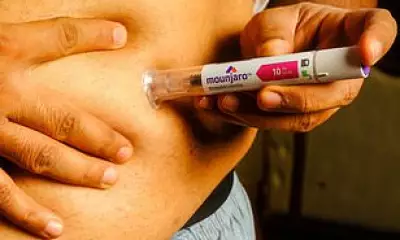
A revolutionary monthly injection could liberate severe asthma patients from their dependence on daily steroid tablets, according to the findings of a major international clinical trial.
A New Hope for Severe Asthma Sufferers
The study, known as the Wayfinder trial and led by King's College London, involved just under 300 adults suffering from severe, uncontrolled asthma. These patients, hailing from 11 countries including the UK, US, France, Germany, Mexico, and Spain, were all taking daily oral corticosteroid doses ranging from 5mg to 40mg.
While inhalers successfully manage symptoms for the majority of the 260 million asthma sufferers worldwide, those with the most severe form of the disease often rely on these daily steroid tablets. However, long-term use is linked to serious health risks, including osteoporosis, diabetes, and a heightened vulnerability to infections.
Remarkable Trial Results After One Year
The participants were given monthly injections of a biologic drug called tezepelumab, also known as Tezspire and manufactured by AstraZeneca. This treatment works by binding to and blocking a key protein responsible for airway inflammation.
The outcomes, published in the Lancet Respiratory Medicine and presented at the British Thoracic Society winter meeting, were striking. After one year of treatment:
- More than half of the participants had completely stopped taking their steroid medication, with no flare-up of their asthma.
- Nearly 90% had successfully reduced their steroid use to a low dose.
- A significant improvement was also seen at the six-month mark, with a third of patients already ceasing steroid use.
The trial further demonstrated that tezepelumab significantly enhanced asthma symptoms, lung function, and overall quality of life. During the study period, two-thirds of patients did not experience a single asthma attack.
Expert Reaction and Future Implications
Lead author Professor David Jackson, a respiratory medicine expert at King's College London, expressed his enthusiasm for the results. He highlighted that the drug's ability to also suppress allergy-related symptoms and improve chronic rhinosinusitis makes it particularly exciting for patients who suffer from both upper and lower airway conditions.
Dr Samantha Walker, Director of Research and Innovation at Asthma + Lung UK, described the development as "incredibly encouraging" and something that "could transform the lives of people with severe asthma." She stressed the critical need for continued funding into lung health research, which remains severely underfunded despite lung conditions being the third biggest cause of death in the UK.
Echoing the sentiment, Professor Kamila Hawthorne, Chair of the Royal College of GPs, welcomed the prospect of a new, manageable treatment option. She noted that a monthly injection could be easier for some patients than daily tablets, while emphasising the importance of carefully assessing the findings for future clinical guidelines.
The drug, tezepelumab, was approved by the National Institute for Health and Care Excellence (NICE) in 2023 as an add-on maintenance treatment for patients aged 12 and over whose asthma is not well-controlled by their standard medication.






